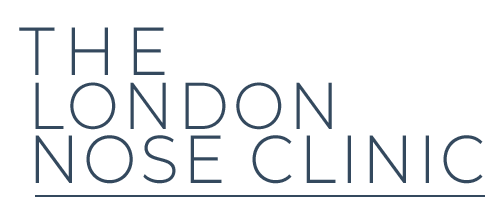1. You will either stay overnight or be discharged the morning after surgery depending on how well you are feeling. If you go home on the day of surgery you will require a friend or relative to pick you up from the hospital and you will need to have someone with you at home for the first night.
2. Depending on the degree of surgery on the internal nasal passages you will feel blocked for the first 1-2 weeks after the surgery and this will then gradually improve.
3. Your nose may bleed a little after the operation and this can sometimes continue for several days. We may insert nasal packs to control bleeding during the operation and these are either removed before you leave hospital (non absorbable type) or left in the nose when you go home (fragmentable type). If bleeding starts when you are at home and is profuse then you need to phone for an ambulance to take you to Casualty, remain calm! This can occasionally occur after nasal surgery. If it is relatively minor and persistent phone the office for advice. Very occasionally a patient may require further treatment to stop post-operative haemorrhage or even require to go back to the operating theatre (< 1%).
4. The surgery is not particularly painful although you may feel ‘under the weather’ due to postoperative nasal blockage and the effects of the anaesthetic.
5. You will be given pain killers and sometimes antibiotics to take home with you from the hospital.
6. Your nose will feel slightly numb after the surgery. Sensation will gradually return with time but may take months and occasionally will not return to normal.
7. You will have a nasal splint on the outside of your nose for around 7 days.
8. Occasionally during septal surgery we insert plastic splints inside the nose to prevent scar tissue formation and support the nasal septum. These are removed in the clinic one week after the surgery. You will require antibiotics to prevent infection when splints are inserted.
9. If the surgery is performed using an ‘open approach’ you will have fine stitches that will need to be removed from the skin between your nostrils between 5 and 7 days. The application of Vaseline to the incision and just inside the nostrils twice a day for the first week is helpful as it prevents crusting. The incision invariably heals well. If the surgery is performed by the ‘closed approach’ there will be no stitches to remove. All the stitches within the nose are dissolvable.
10. You should not blow your nose for the first week after your surgery. If you sneeze, try to let it out through your mouth!
11. The inside of your nose may be swollen and contain dry blood and mucus after the surgery depending on the type of surgery that you have had. This will clear between weeks 2 and 6.
12. Sometimes we will need to take cartilage from your ear. You will have a dressing on the ear after the surgery with stitches which we remove at one week. You may experience discomfort in the ear for several weeks although this is usually mild and not troublesome.
13. Occasionally we will need to take rib cartilage. There can be discomfort associated with this for several days and we will provide you with medication for pain relief.
14. Wearing contact lenses after the operation is ideal but if you need to wear glasses you will need to tape them to your forehead for at least 2 weeks. This prevents pressure being applied to the nose.
15. Avoid physical exertion for 2 weeks after surgery and then gradually increase to your normal level of exercise. Avoid contact sports for 4 weeks.
16. If you are exposed to the sun after surgery use high factor block for 3 months. The skin over the nose is sensitive to the sun after surgery.
17. The surface of the nose after surgery does not always feel smooth and may have minor irregularities. This is normal.
18. Our aim is that your expectations are realized and we will do everything that we can to achieve this. If you have any concerns after the surgery please do not hesitate to contact us. We will routinely arrange a follow-up appointment 5 to 7 days after your operation.

